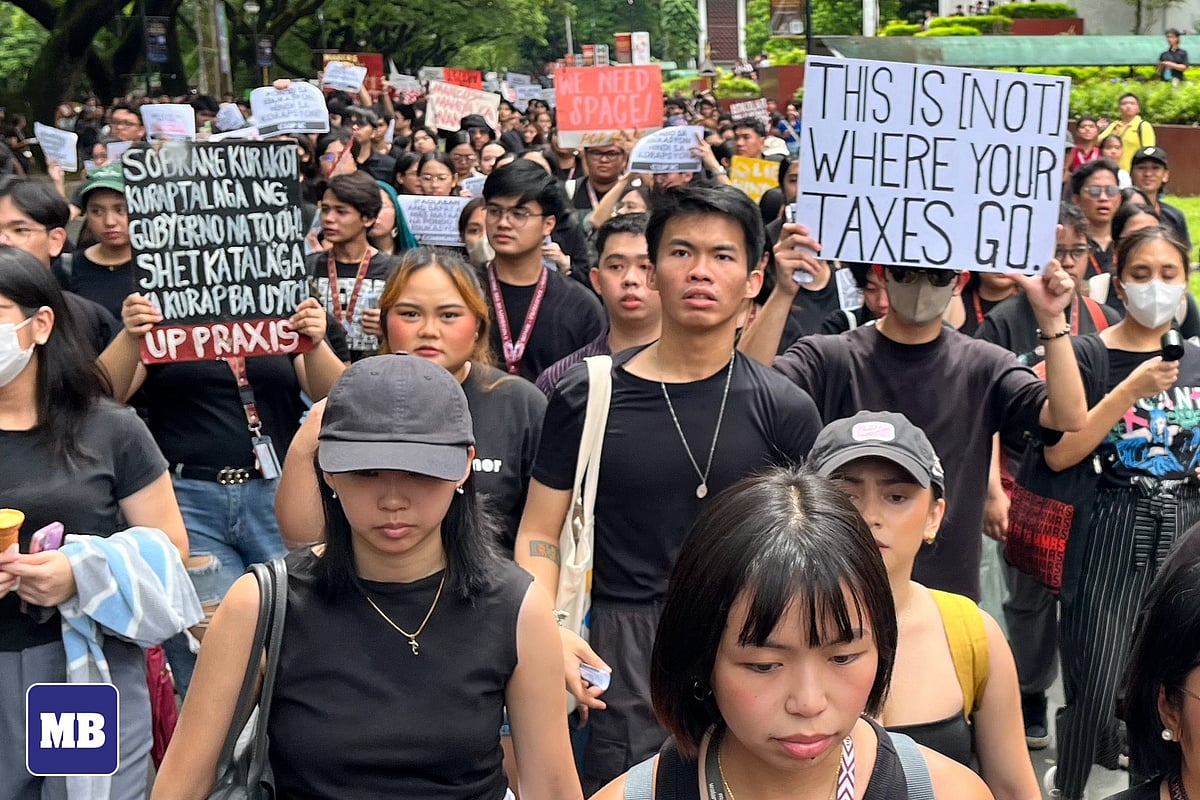Can the Philippines Take a Stand Against Graft like Indonesia and Nepal?

Published: 2025-09-13 03:25:41 | Category: Uncategorized
The ongoing protests in the Philippines highlight a growing discontent among young Filipinos towards the entrenched corruption within their government, particularly involving lawmakers, contractors, engineers, and auditors. This situation underscores deep-rooted issues that contribute to inadequate infrastructure and public services.
Last updated: 13 September 2025 (BST)
Key Takeaways
- Young Filipinos are protesting against the corruption linked to infrastructure projects.
- Allegations suggest that up to 60% of budgets may be siphoned off through kickbacks.
- Protests have escalated, with significant student involvement from universities.
- The government is facing scrutiny, with calls for accountability and transparency.
- Future actions may reshape governance, as public anger grows against corruption.
The Background of Corruption in the Philippines
The Philippines has long struggled with corruption that permeates various layers of government. This issue is particularly pronounced in the infrastructure sector, where funds earmarked for public works often mysteriously disappear, leading to poor-quality roads and ineffective flood control systems. The current national budget of ₱6.326 trillion (approximately £109 billion) is under heavy scrutiny, with accusations of "midnight insertions" during its approval process, which allegedly facilitate the misallocation of funds.
The Role of Key Players
In this complex web of corruption, several key players emerge: lawmakers, contractors, engineers, and auditors. The intertwining relationships between these groups not only hinder the delivery of essential public services but also create a culture of impunity where corrupt practices can thrive.
Corruption Allegations and the Impact on Infrastructure
Recent investigations have revealed shocking evidence of fraud, including ghost projects—projects that are funded but never actually executed. Contractors have reported that as much as 30% of project costs are demanded as kickbacks by lawmakers. These practices have severe consequences, leading to significant financial losses for the Philippine economy and contributing to the deteriorating state of public infrastructure.
The Public Outcry and Protests
In response to these revelations, a wave of protests has swept across the Philippines, primarily driven by the youth. The outcry has been particularly vocal among students, who have taken to the streets to demand accountability and transparency. Many feel that their future is jeopardised by the ongoing corruption that stifles economic growth and public welfare.
Recent Protests and Their Significance
On September 12, 2025, thousands of students from the University of the Philippines-Diliman participated in indignation rallies, expressing their frustration over the corrupt practices that have persisted for decades. This mobilisation marks a significant moment in the Philippines, as young people unite to confront the status quo, reminiscent of previous civil movements in the region.
The Government's Response
In light of the mounting public pressure, the Philippine government has begun to respond. Recently appointed DPWH Secretary Vince Dizon announced a crackdown on confirmed ghost projects, pledging to blacklist contractors involved in corruption. However, these efforts have been met with scepticism, as many question whether genuine reform is possible within a system so deeply entrenched in corruption.
Call for Accountability
Calls for accountability have intensified, with various sectors demanding not just the resignation of implicated officials but also criminal prosecutions and asset recovery. The Catholic Church has joined the fray, urging the public to continue their fight against injustice through social media activism and peaceful protests.
The Future of Protests in the Philippines
As the protests continue, the future of governance in the Philippines hangs in the balance. Will the protests lead to meaningful change, or will they fizzle out as previous movements have done? The current climate suggests a growing willingness among young Filipinos to challenge the government and advocate for their rights.
Implications for Governance and Society
The potential for a shift in governance practices exists, as the growing public outrage could force lawmakers to reconsider their actions. The outcome of these events may set a precedent for future political engagement and civic responsibility among the youth.
Conclusion: A Call to Action
The protests in the Philippines are more than just a response to corruption; they represent a broader demand for change in governance and accountability. As young Filipinos rally together, they are not only voicing their frustrations but also reclaiming their power in shaping the future of their nation. The question remains: will their collective efforts result in a more transparent and just government, or will they be met with resistance from an entrenched system? Only time will tell.
FAQs
What are the main causes of protests in the Philippines?
The protests are primarily driven by widespread discontent over government corruption, particularly in infrastructure projects where funds are misappropriated or wasted on ghost projects.
How has the government responded to the protests?
The Philippine government has begun to take steps toward accountability by announcing crackdowns on corrupt contractors and promising reforms, although public scepticism remains high.
What role do young Filipinos play in these protests?
Young Filipinos, especially students, are at the forefront of the protests, advocating for transparency and holding government officials accountable for corruption that affects their future.
What are ghost projects?
Ghost projects refer to publicly funded initiatives that receive money but are never actually completed or executed, leading to significant financial losses for the government and taxpayers.
Will the protests lead to meaningful change?
The potential for change exists, as the current wave of protests reflects a growing awareness and willingness among young Filipinos to challenge corrupt practices and push for reform.



